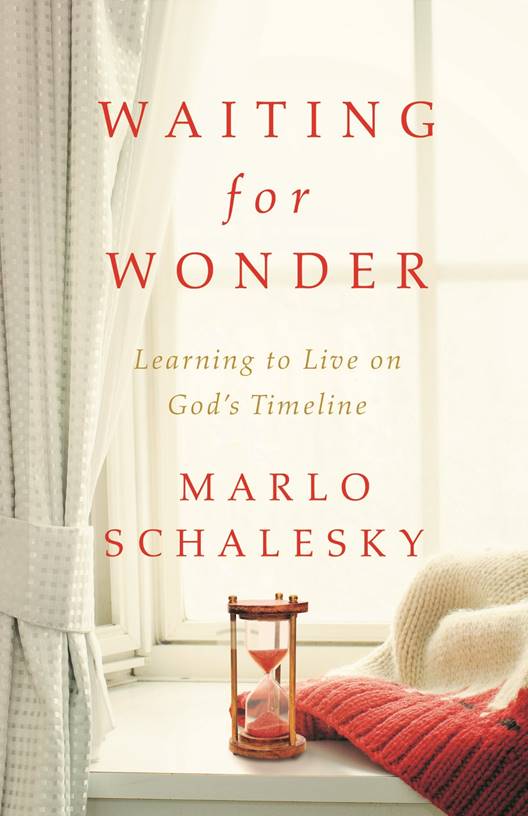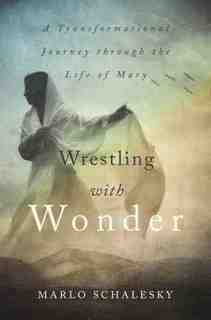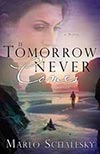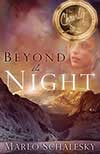 Hi Friends,
Hi Friends,Stuart Brannon's Final Shot
Historical Fiction by Stephen Bly
with Janet Chester Bly, Russell Bly, Michael Bly & Aaron Bly
Finishing Dad's novel was a family affair. Can a committee create fiction? We had the passion to find out. Here's how we did it: http://www.christianfictiononlinemagazine.com/home_publisher.html
It's 1905. Two orphans flee from Oregon's Tillamook Head. One of them is branded a hero. Do they tell the truth and risk the wrath of a dangerous man? Meanwhile, a retired lawman searches for his missing U.S. Marshal friend while he grapples with the game of golf on behalf of a celebrity tournament.
Rancher and widower Stuart Brannon had no intention of leaving his beloved Arizona Territory to attend the Lewis and Clark Centennial Exposition in Portland. His life no longer consisted of men to track down ... outlaws trying to kill him ... gangs preying on the innocent. Then the telegrams came ... how could he refuse Lady Harriet Reed-Fletcher and the President of the United States?
~~~~~
FINISHING DAD’S NOVEL: A FAMILY AFFAIR
Janet Chester Bly
Copyright©2012
My husband, Stephen Bly, hated half-done jobs. He couldn’t stand a ‘to do’ list without immediate action. One big project for 2011: complete his novel, Stuart Brannon: The Final Shot.
When he passed away on June 9th, 2011, my sons said to me, “Let’s finish that book.”
The idea grew. They had their dad’s creativity and wit. They’d impart their father’s input. I also discovered the value of their feedback and encouragement. I couldn’t do it without them.
The editor gave us a four-month extension. This incomplete project became a family affair.
Can a committee write a novel? We had the passion to find out.
Steve left us 7,000 words, a synopsis and some character names. We read over his sample chapters.
“It reads more like a mystery than a western,” we four surmised.
This book must resonate like a Stephen Bly novel and resemble the early Stuart Brannon Series. Yet, this story’s different. Brannon’s older. He struggles to fit into the 20th Century. He also grapples with the game of golf on behalf of a celebrity charity tournament.
We immersed ourselves in the original series. We scanned other Stephen Bly novels for Brannon mentions. I scoured Steve’s resources for a basic grounding in the western world he knew so well. I also skimmed our fiction writing books for tips and printed out excerpts for the sons.
We focused our main theme on fighting for justice, truth and mercy.
We met weekly to brainstorm and critique. We started with a cluster diagram of all the known factors. Spirited discussions stirred debate as well as consensus.
We assigned each other research topics, then talked through and roughed out random scenes. We drafted an outline and plot points to give direction for which scenes to create next.
We tried to include as much of Steve’s writings as we could.
To keep the constant additions discernable, I used a different color type each week that turned into a rainbow manuscript. Even with this trick and the outline, the key challenge was to keep the story’s timeline straight.
Then I took a trip to Oregon, to discover and experience what Steve knew and we didn’t. This added much needed color and revealed critical mistakes.
The deadline loomed as we aimed for 75,000 words. I struggled to eek out 2,000 words daily. When Aaron devised an adventure scene and Mike produced the golf tourney and poker game settings, I knew we’d hit the target count.
After we exceeded our goal, we deleted scenes and characters that didn’t move the plot. The last days and hours were frantic with attempts to get it as perfect as possible.
At 10:36 a.m. on November 1st, 2011, son Mike emailed me, “Well? Ready to push ‘send’?
At 11:46 a.m., I did.
We finished Steve’s last undone task.
CHAPTER ONE
Sunday afternoon, June 11, 1905, south of Portland
“I thought you was dead.” The words rumbled out of some deep, dark pit of tales told at late night campfires and smoky saloons. Thick drops of dirty sweat careened down the bearded man’s face. A ripped-in-shreds shirt sleeve exposed a long, jagged old scar on his left arm. Bloodshot brown eyes glared into the future as if forecasting bad news. Very bad news.
“A common mistake.”
A faded, red bandana brushed the man’s bulging neck. His bronzed face held to the tight expression of a man looking for an advantage. “No foolin’. Argentiferous Jones said he shot you dead over a poker hand in Bisbee. I believe you was packin’ three queens.”
“He was wrong.” Every eye in the dining car watched the trigger of Stuart Brannon’s drawn Colt .44 revolver, ready to witness a sudden blast.
“I can see that now and would like to be given a chance to atone for my erroneous assumption.”
“I’m sure you would. You stopped this train on a tall trestle in the middle of a river, cold-cocked the conductor, stole the possessions of all the passengers and whatever else of cargo you found on board, and in the mix scared the women, children, and most of the men near to death. Out West a man can hang for such offenses.”
He tried to straighten his bow-legs, puffed out his huge chest. His good eye glared at Brannon like the headlight of a locomotive. “What do you get out of this? Surely you don’t expect to shoot me in front of these delicate ladies. What if I just put down my pistol and . . .”
Brannon glared right back. “And what do all of us get out of that?”
The man croaked out the words. “A clear conscience?”
“Already got one.” Brannon shoved the muzzle closer to the man’s ripped ten-gallon-hat with the creased crown and molded brim.
“What if I return the money and goods to all these fine folks on the train?”
“That’s a start.”
He dropped a leather sack to the carpeted floor, stepped back, and raised his hands. “What else can I do?”
“Hike down the track to the next town and turn yourself in to the sheriff for robbing this train.”
“You mean, turn myself in on my own accord?”
“Yep. You can do it. We’ll just ride on up ahead and let them know you’re on your way.”
“No one does that, especially Slash Barranca.” He studied Brannon to watch for the reaction.
Brannon didn’t blink. “Well, Slash, here’s your chance to stand out from a crowd of no-goods.”
“So, you know who I am?”
“Nope. Never heard of you.”
“Are you sure you’re the original Stuart Brannon?”
“The real question is, do you trust that I’m Stuart Brannon? If you aren’t certain, then make your move and see what happens. And if you still wonder, then say goodbye to these nice folks. I’m pullin’ this trigger right now. So, what’s your choice?”
The man looked over the crowd. His gaze stopped at two men in their fifties in brown suits. One of them glared a kind of warning. The other looked down. Brannon wondered if Barranca was going to make an appeal to them. But his chin drooped to his chest and his words blurted out with such force, the windows almost rattled. “Yeah, you’re Brannon, all right.”
“Good. Leave the stash, your gun and your boots in the car. Then, start walkin’.”
“Now, how do you expect me to make it to town without boots?”
“Very slow. By the time you get to the other side of the bridge, there should be a nice little posse gathered. And don’t think about diving over the edge. You’ve got one foot of water and a fifty foot drop.”
Slash Barranca pulled up his pants’ legs as he climbed out of the train and stepped onto the rough track surface. Applause and “hurrahs” rocked the car as the train rolled away without the bootless outlaw. The staff seemed eager to return order and routine for the passengers as quick as possible. Announcements of supper followed with beefsteak, fried eggs and fried potatoes wheeled out to the dining car. A little overdone, but no one complained.
A huge sign made of logs greeted them at the next stop when they transported the injured conductor off the train.
100 Miles to Portland, Oregon
Home of the world’s famous
Lewis and Clark Centennial Exposition
Brannon stretched his arms and legs and tried to remove the dust from his travel suit. No amount of brushing or shaking made a dent. He pulled out a copy of Treasure Island by Robert Louis Stevenson that his daughter-in-law, Jannette, had given him before he left Arizona, but his mind wandered. He ran through the recent events once more.
It started at the Prescott Post Office with one of those rosy-scented letters from Lady Harriet Reed-Fletcher.
When Lady Fletcher sends you a scented letter, it’s a dangerous omen.
The answer he gave her was “no.”
At fifty-eight years old, Stuart Brannon had no intention of leaving his beloved ranch or Arizona Territory, not even for a long-time, good friend like Harriet. No matter how many times she offered her appeal—“I need one more celebrity . . . It’s for the Willamette Orphan Farm . . . It won’t cost you anything.” But she could not convince him to go to Oregon, especially to participate in a golf tournament charity event in conjunction with the Lewis and Clark Centennial Exposition.
What was she thinking?
Yes, Captains Lewis and Clark were his heroes.
Yes, they deserved a gala celebration.
And yes, from what he heard, the Oregon coast promised a refreshing change from the desert landscape.
But he had never once picked up a golf club. An old rancher and retired lawman playing on a golf course? What a ridiculous idea.
And the Triple B ranch needed him.
Or he needed the ranch, since his adopted son, Littlefoot Brannon, could oversee and do most of the work.
Life had become a peaceful routine. L.F. and his wife, Jannette, provided him with four over-active grandchildren, who played tag, leapfrog, hopscotch and occasional simple card games, but more important, listened to his stories.
No more evil men to track down. No one trying to shoot him in the back. No lawless gangs preying on the innocent . . . not near his ranch anyway.
Then the telegram came from another friend, Theodore Roosevelt. Stuart, I need you in Portland. Tom Wiseman is missing. I think there’s a cover-up going on. Say you’re going to the Exposition. Find out how a U.S. Marshal can disappear and no one knows why. T.R.
If Tom Wiseman had vanished, Brannon suspected the marshal initiated the event. But why? And where?
But he was too close a friend to ignore this plea. As a government worker, as well as an Arizona rancher, Tom Wiseman had aided him with personal and legal problems. And many times Tom Wiseman had stood with Brannon against lawbreakers, when no one else could or would.
And how could he refuse a request from the President of the United States?
~~~~~~~~~~~~~~
Copyright©2012 Please do not reproduce without permission.
Stuart Brannon's Final Shot now available in hardback & via all popular ebook formats. Paperback edition coming soon. Order through your local bookstore or online at sites such as http://www.BlyBooks.com http://www.amazon.com/ or http://www.barnesandnoble.com/









1 comments:
Greetings, Marlo: Thank you so much for this feature of Stuart Brannon's Final Shot. Greatly appreciated!
Blessings,
Janet
Post a Comment